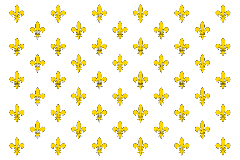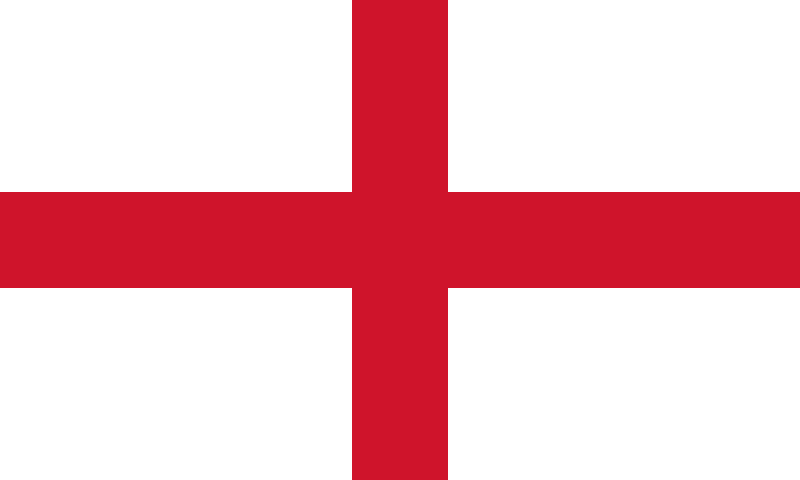 |
 |
 |
 |
 |
 |
BATTAGLIA NAVALE DI BARFLEUR
NAVAL BATTLE OF BARFLEUR
(29 MAGGIO - 02 GIUGNO 1692)
LA PIU' GRANDE BATTAGLIA NAVALE DELLA STORIA
|
|
STORIA DELLA BATTAGLIA
HISTORY OF THE BATTLE
LA BATTAGLIA NAVALE MINUTO PER MINUTO
NAVAL BATTLE OF BARFLEUR MINUTE FOR MINUTE
LA BATTAGLIA NAVALE DI LA HOUGUE / NAVAL BATTLE OF LA HOUGUE
(02 GIUGNO 1692)
(liberamente tratto da "Venticinque secoli di guerra sul mare" di Jacques Mordal, edizioni U. Mursia & C. Milano)
Mentre a Cherbourg si svolgeva questo dramma, Russell bloccava strettamente con il grosso della flotta i dodici vascelli rifugiatisi a La Hougue, e il vice ammiraglio Rooke si disponeva ad un attacco nello stesso stile.
Arrivato a Saint Vaast il 31 maggio a sera, Tourville aveva fatto ancorare i suoi dieci vascelli accanto ai due lasciati da Nesmond, al riparo di una lingua sabbiosa chiamata le Crocque de Quineville, al di qua della penisola di La Hougue.
Ormai non era più padrone delle proprie decisioni. Le istruzioni ricevute lo costringevano fin dal suo arrivo a prendere ordini da Giacomo II dal maresciallo de Bellefonds e dell'intendente Bonrepaus quest'ultimo del resto, non comparve nemmeno, poco desideroso certamente di legare la propria responsabilità al dramma che si preparava.
Si sarebbe forse potuto tentare una sortita dopo aver frettolosamente rifornito la squadra di munizioni, attingendo alle riserve dei magazzini di Carentan e di Valognes.
Si perdette la giornata del 1° giugno a tergiversare, per decidere alla fine di incagliare le dodici navi: sei dietro la punta de La Hougue e sei sotto il vicino isolotto di Tatihou. e di scaricarle di tutto ciò che se ne poteva asportare.
Come ogni salvataggio del genere effettuato in condizioni disperate, in conseguenza della stanchezza degli equipaggi estenuati che dopo la lunga battaglia del 29 non avevano avuto un istante di riposo, queste operazioni si svolsero in grande disordine e il recupero, talvolta, somigliò molto a un saccheggio.
I capi dell'Esercito, che non avevano le stesse attenuanti, incrociarono le braccia: il maresciallo de Bellefonds, che aveva promesso di fornire 150 lance armate per la difesa della squadra, sarà appena capace di approntarne una dozzina.
Quando la flottiglia delle imbarcazioni nemiche si presentò la mattina del 2 giugno, trovò sgombre le sei navi incagliate sotto Tatihou e le mise in fiamme con tutta tranquillità senza la minima reazione da parte degli uomini della guarnigione dell'isolotto...; non più che da parte di de Bellefonds e di Giacomo II che, da Saint Vaast, contemplavano il pietoso spettacolo altrettanto tranquillamente che se si fosse trattato di fuochi d'artificio ».
Nauseati di questa noncuranza, alcuni uomini di fegato presero allora l'iniziativa di tentare di organizzare una parvenza di difesa a Saint Vaal stessa prima che, il mattino del 3, oltre 200 lance nemiche tornassero con la marea. Tourville, de Relingue, Villette, con pochi marinai bloccarono il primo urto.
Una batteria scoperta messa in postazione dal cavaliere de Gassiou, affondò qualche lancia agli Inglesi uccidendo un certo numero di uomini. Ma gli assalitori erano in forze e rimorchiavano una massa di brulotti sotto l'effetto dei quali si videro successivamente prender fuoco il Fort, il Bourbon, il Gaillard, il Tonnanl, il Fier, come la vigilia erano stati incendiati il Terrible, il Merveilleux, l'Ambilieux, il Foudroyanl, il Magnifique e il Sainl-Philippe, la cui gloria. conquistata nel combattimento di Barfleur, parve svanire nel fumo di quel lugubre olocausto.
L'Esercito a terra non si era mosso! Non si era nemmeno preoccupato di assicurare la protezione dei propri trasporti che gli Inglesi cominciarono a incendiare, e che sarebbero tutti scomparsi a loro volta se il timore di finire in secca non avesse spinto le flottiglie nemiche a ritirarsi con il riflusso della marea.
Se Tourville avesse perduto questi quindici vascelli nel corso del combattimento di Barfleur, i risultati materiali sarebbero stati gli stessi; ma l'effetto morale sarebbe stato meno rilevante.,. soprattutto perchè tali perdite non si sarebbero verificate sotto gli occhi dell'intera popolazione.
Quindici navi di meno, checche se ne sia detto, non compromettevano seriamente la potenza della Marina francese, « Di navi ne potremo trovare ancora, ma non potremo ritrovare un uomo come Tourville », aveva gridato Luigi XIV informandosi della sorte dell'ammiraglio dopo la battaglia.
Aveva ragione: Tre giorni dopo La Hougue, il 6 giugno 1692, Victor Marie d'Estrees si dichiarava pronto a salpare da Brest con 64 vascelli, e l'anno successivo, a Lagos, lo stesso Tourville ne avrà ai suoi ordini 93! Ben più grave era la disfatta morale, risentita non dai marinai ma dal loro ministro che ormai si comporta da vinto; dalla macchina governativa, di cui le circostanze stesse del dramma di La Hougue tradiscono i primi scricchiolii, « Noi, dei vinti, non abbiamo ne lo spirito ne il linguaggio », esclamano i marinai.
E d'Estrees esige un'azione rapida. « Considero molto importante il fatto che non abbiamo perduto una sola nave nel corso del combattimento », cosi parla di Barfleur, « ciò prova a sufficienza la nostra superiorità sugli Inglesi e gli Olandesi ». Il comandante in capo nemico non ha esitato, nemmeno lui, -si faceva, a quei tempi a scrivere al suo avversario per felicitarsi “dell’estremo valore dimostrato nell’attaccarlo con tanta in trepidità e nel combattere con tanto valore nonostante la grave disparità di forze » ,
Apriamo la storia della Marina britannica di W. Laird Clowes, Subito dopo l'episodio di La Hougue vi troveremo il resoconto del « disastro del convoglio di Smirne », Era la risposta di Tourville a Rooke, l'incendiario di Saint-Vaast-Ia-Hougue.
Il 27 giugno 1693, al largo di Lagos, le flotte combinate di Tourville e di d'Estrees sorprendevano un convoglio di 400 mercantili scortato dallo stesso Rooke, e catturavano o incendiavano 92 bastimenti sono gli stessi Inglesi ad ammetterlo senza contare due dei vascelli di scorta.
L'anno dopo sarebbe stato Jean Bart a coprirsi di gloria al Texel, strappando, con la sua piccola divisione di sei navi di secondo e terzo rango, agli otto forti vascelli dell'ammiraglio olandese Hyddes de Vries, un convoglio di cento navi di grano che quest'ultimo aveva appena catturato e, insieme, tre delle sue navi da guerra.
No, La Hougue non aveva scacciato dai mari la Marina francese; ma è incontestabile che quel rovescio avesse prodotto conseguenze disastrose sullo spirito dell'opinione pubblica e su quello dei dirigenti francesi. Esso ebbe disgraziate ripercussioni sulla ulteriore condotta delle operazioni nella guerra della Lega di Augusta, iniziata con il dominio dei mari e perduta in fin dei conti per essersi lasciato sfuggire tale dominio non a causa delle perdite materiali ma per le conseguenze psicologiche di La Hougue.
NAVAL BATTLE OF LA HOUGUE ( 02 JUNE 1692)
While to Cherbourg this play developed him, Russell tightly stopped with the big one some fleet the twelve vessels sheltered him to her Hougue and the deputy admiral Rooke he prepared him to an attack in the same style.
Reached Saint Vaast on May 31 to evening, Tourville he had made to anchor his ten vessels close to the two left by Nesmond, to the shelter of a language sandy call the Crocques de Quineville, to the of here of the peninsula of You Hougue.
It was not anymore by now master of his own decisions. The received instructions forced it since its arrival to take orders from Giacomo II from the marshal de Bellefonds and of the superintendent Bonrepaus this last after all, it didn't even appear, few desirous certainly to tie his own responsibility to the play that prepared him.
He would perhaps be been able to try one gotten after hastily having supplied the team of ammunition drawing to the reserves of the stores of Carentan and Valognes.
You perdette the day of June 1° to prevaricate, to decide at the end of to hinder the twelve ships: you are behind the point de you Hougue and six under the near islet of Tatihou. and to unload her of all of this that could remove.
As every rescue of the kind effected under desperate conditions, in consequence of the tiredness of the exhausted crews that had not had an instant of rest after the 29 long battle, these operations were developed in great disorder and the recovery, it resembled a lot sometimes to a looting.
The heads of the army, that didn't have the same excuses, crossed the braccias: the marshal de Bellefonds, that had promised to furnish 150 armed lances for the defense of the team, will be as soon as able to ready a dozen of it.
When the flotilla of the hostile boats introduced him the morning of June 2, it found clear of the six aground ships under Tatihou and it put her in flames with all calm without the least reaction from the men of the garrison of the islet...; not more than from de Bellefonds and of Giacomo II that, from Saint Vaast, they contemplated the compassionate show as many quietly that if he had dealt with fires of artifice».
Nauseated of this carelessness, some men of liver took then the initiative to try to organize an appearance of defense to same Saint Vaal before, the morning of 3, over 200 hostile lances they returned with the tide. Tourville, de Relingue, Villette, with few sailors they stopped the first bump.
A battery open mass in posting from the rider de Gassiou, sank some lance to the English killing a certain number of men. But the assailants were in strengths and they towed a mass of brulotti under the effect of which prenders were subsequently seen fire the Fort, the Bourbon, the Gaillard, the Tonnanl, the Fier, as the eve they had been set on fire the Terrible, the Merveilleux, the Ambilieux, the Foudroyanl, the Magnifique and the Sainl-Philippe, whose glory. conquered in the fight of Barfleur, it seemed to fade away in the smoke of that gloomy holocaust.
The army to earth had not stirred! He was not even worried about to assure the protection of his own transports that the English started to set on fire, and that they would be all disappeared to them it turns if the fear to end in low water had not pushed the hostile flottiglies to retire themselves with the reflux of the tide.
If Tourville had lost these fifteen vessels during the fight of Barfleur, the material results would have been the same; but the moral effect would have been less remarkable. above all because such losses would not be verified under the eyes of the whole population.
Quindici ships less, checche is said, they didn't jeopardize seriously the power of the French Marina, '4 «Of ships we can find anchor of it, but we cannot find again a man as Tourville», he had shouted Luigi XIV informing itself about the fate of the admiral after the battle.
It was right: Three days later You Hougue, June 6 th 1692, Victor Marie of Estrees pronounced him ready to set sail from Brest with 64 vessels and the following year, to Lagos, the same Tourville will have to his orders of it 93! Well more serious it was the moral defeat, resentful not from the sailors but from their minister that by now it involves from defeated; from the government car, of which the same circumstances of the play of You Hougues betray the first scrunches, «Us, of the defeated ones, we don't have the spirit of it of it the language», the sailors exclaim.
And of Estrees demands a rapid action. «I consider very important the fact that we don't have lost an only ship during the fight», so he speaks of Barfleur, «this tries to sufficiency our superiority on the English and the Dutch». The commander in hostile head has not hesitated, not even him, - he did, to that times to write to his adversary to congratulate him "of the extreme value shown in to attach as much it with in trepidità and in to fight with so much value despite the serious disparity of strengths»,
We open the history of the British Marina of W. Laird Clowes, Immediately after the episode of You Hougue we will find you the account of the «disaster of the convoy of Smirne», it was the answer of Tourville to Rooke, the incendiary one of Saint-Vaast-Ia-Hougue.
June 27 th 1693, offshore Lagos, the fleets combined of Tourville and of of Estreeses surprised a convoy of 400 merchantmen escorted by the same Rooke, and they captured or they set on fire 92 ships they are the same English to admit it without counting two some vessels of escort.
Later the year would have been Jean Bart to cover themselves with glory to the Texel, tearing, with its small division of six ships of second and bystander rank, to the eight strong vessels of the Dutch admiral Hyddes de Vries, a convoy of one hundred ships of wheat that this last had just captured and, together, three of its war ships.
No, You Hougue had not sent away from the seas the French Marina; but it is incontestable that that reverse had produced disastrous consequences on the spirit of the public opinion and on that of the French executives. It had unfortunate repercussions on the further behavior of the operations in the war of the League of August, initiated with the dominion of the seas and lost after all to have allowed to escape not such dominion because of the material losses but for the psychological consequences of You Hougue.
BATTAGLIA NAVALE DI BARFLEUR / NAVAL BATTLE OF BARFLEUR
LE PIU' GRANDI BATTAGLIE NAVALI /NAVAL BATTLE
NAVI DA GUERRA / WARSHIPS AND BATTLESHIPS
PORTAEREI NELLA STORIA /AIRCRAFT CARRIERS